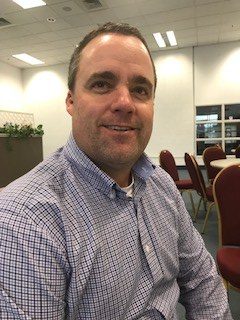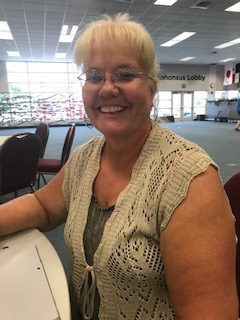
Photo of the Snake River near Ontario, Oregon, in Malheur County. Photo credit: Ken Lund
For the last three years, educators from Malheur County and the surrounding communities have attended the Malheur Summer Institute for professional development. The Institute provides educators in far eastern Oregon the opportunity to meet with colleagues and explore ideas and best practices to better serve children in their communities. Designed for educators serving young people birth to 20, the Institute is an invaluable resource in a county that’s larger than the state of Rhode Island but has a population of 30,000 people.
The Institute was created by Malheur Education Service District (ESD) Superintendent Mark Redmond, who has worked for seven years at the ESD (three as superintendent) and 14 years as a teacher in Vale, Oregon. Superintendent Redmond knows the importance of supporting teachers and creating systems that allow students to thrive.
Children’s Institute staff visited Ontario, the Malheur County seat this week, to attend the Malheur Summer Institute and a book giveaway for children who are refugees or born in the United States to refugee parents. We talked with the superintendent and special education director about the passage of the Student Success Act and the unprecedented opportunity in Oregon to focus new significant public investment on education from early learning to high school. According to Redmond, “The money and resources in the Student Success Act for Early Intervention and Early Childhood Special Education (EI/ECSE) and early education generally will be a game changer for us. Time and time again we see, and research shows the more time and money is invested in early learning, the more impact we have on kids in the long run.” The Student Success Act’s comprehensive, global approach to education will affect kids throughout their academic life.


Mark Redmond, Superintendent, Malheur ESD (above). Teresa Jones, SPED Director, Malheur ESD (below).
Throughout Oregon, where resources for essential services are slim, the annual $1 billion in public funding for education will help close gaps. Oregon teachers and school districts have been doing the work of educating and nurturing children’s natural love of learning, but the funding hasn’t been enough. “This will give us the chance to fully fund Measure 98, which is huge for us. We’ll also be able to address some of the big expenditures we have in mental health and trauma informed care, and the need for counselors.” For Teresa Jones who has worked in education for 21 years and is the Special Education Director for the Malheur ESD, the Student Success Act allows Oregon to follow through on proven practices that provide lifelong positive outcomes for young children. “So many kids enter kindergarten without having high-quality early learning experiences. Some have never even held a pencil before coming to school. It will be great to get this funding to kids.”
While Malheur County borders Idaho and a small stretch of Nevada, the region’s early childhood needs are like those across the state, from the North Coast to the Willamette Valley down to Southern Oregon. Every family in Oregon wants their child to have the best start in life. And local context matters. What may work for a large urban area may not get the best results in a small rural community. A key opportunity at the heart of the Student Success Act is focusing resources in communities to improve outcomes for kids and train and support the workforce responsible for growing young minds. Education has the power to be a transformative experience that prepares young people to enter the world with the confidence and knowledge to be engaged, productive members of their communities. What’s good for kids is good for Oregon.
